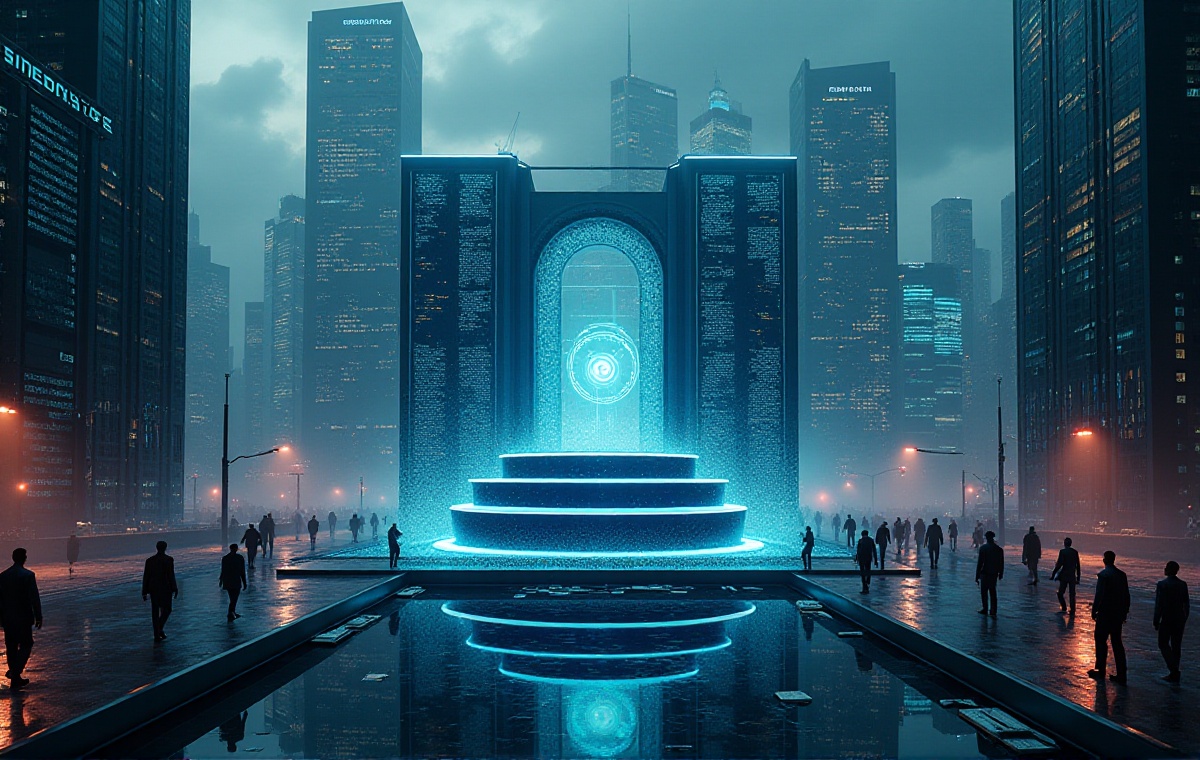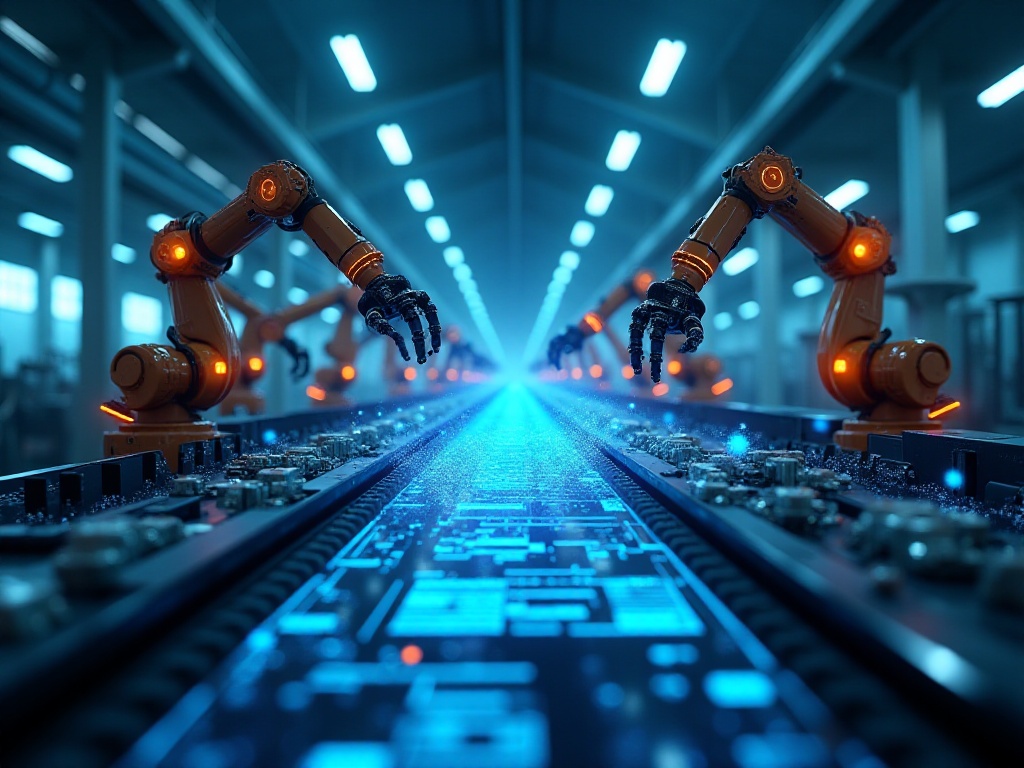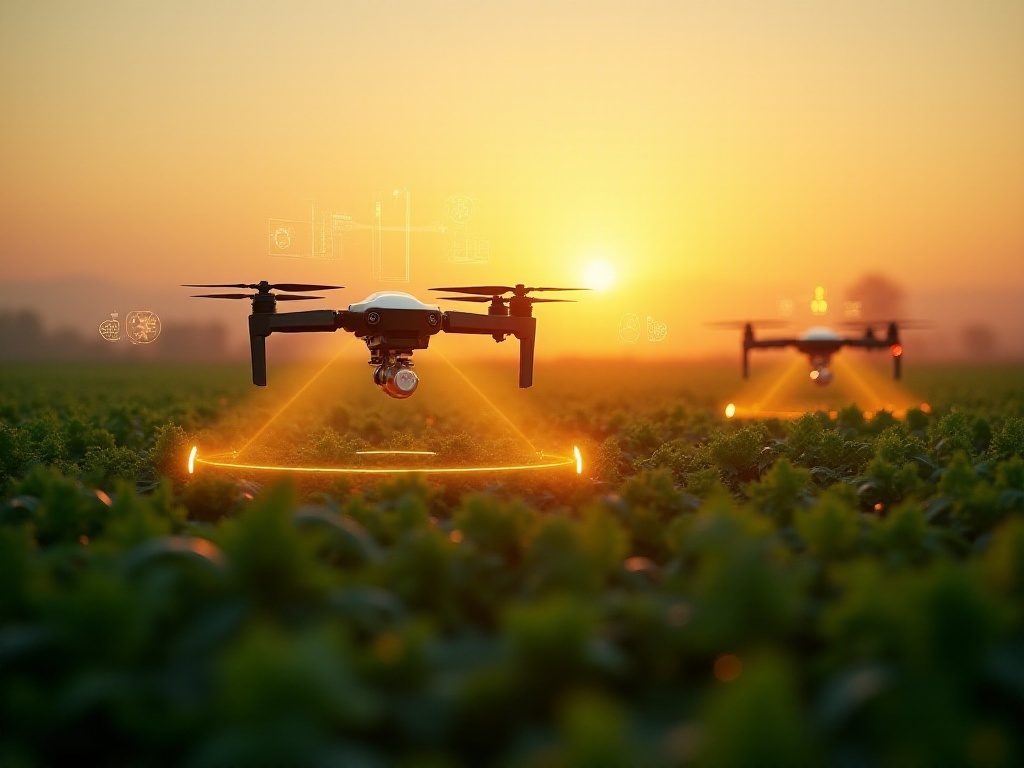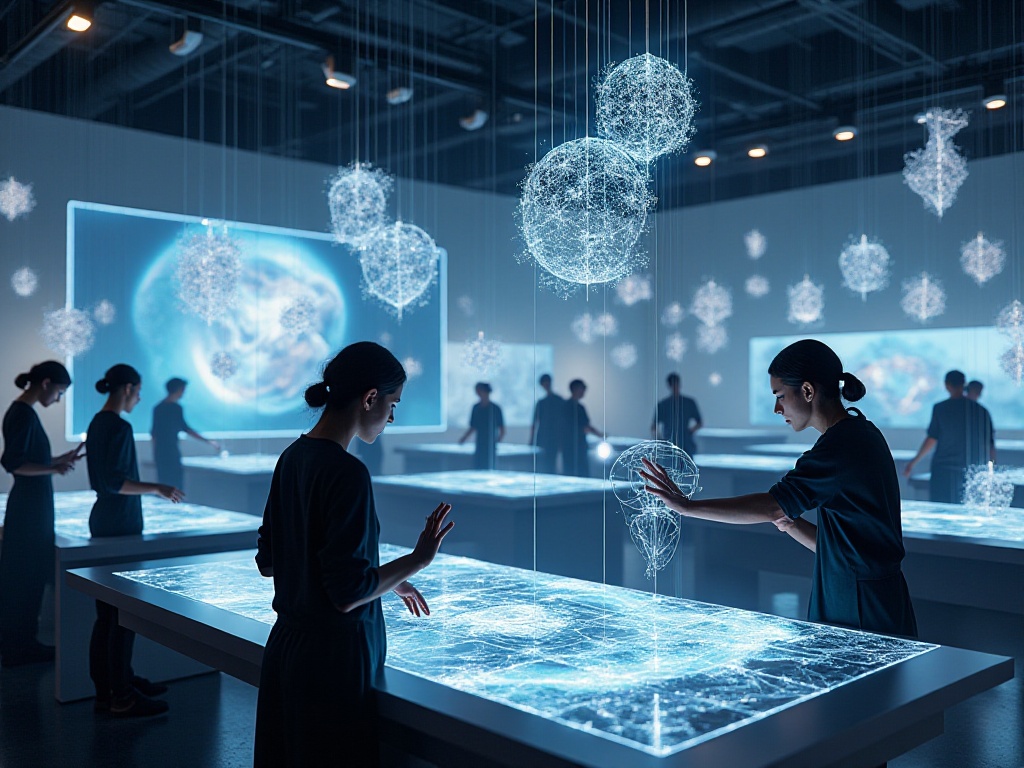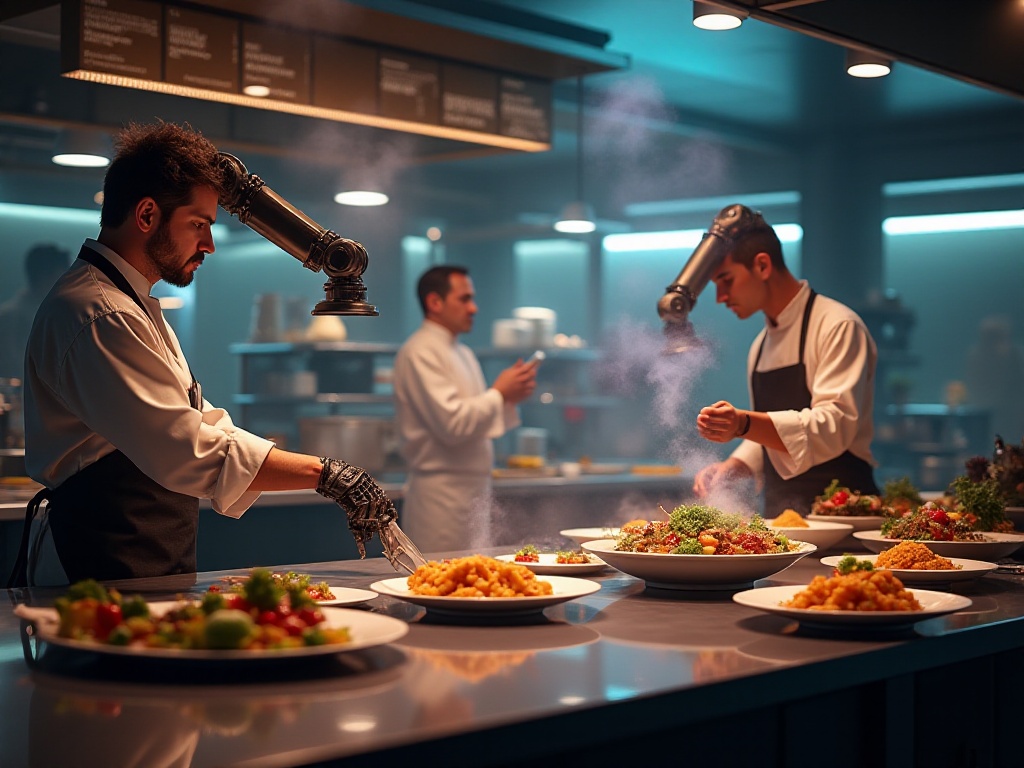Opening Thoughts
As a post-95 working professional, I've been thinking about a question lately: what exactly can artificial intelligence do for us in the medical field? When I see doctors so busy they don't even have time to drink water while waiting in line at hospitals, I wonder if AI could help. I have several doctor friends, and we often discuss this topic. They have both expectations and concerns about AI. Today, I'd like to share my observations and thoughts with everyone.
Image Diagnosis
Honestly, every time I get a CT or MRI, I'm amazed watching doctors study those black and white films for so long. But now it seems doctors don't have to work so hard because AI can help them with much of their work. According to a study published in Nature in 2023, AI has achieved 96% accuracy in identifying early lung cancer lesions in lung CT scans, surpassing the average accuracy rate of 92% for human doctors.
This data really shocked me. One of my doctor friends told me that their hospital's AI system not only reads lung CTs but also performs excellently in breast mammography and brain MRI examinations. For example, in breast cancer screening, the AI system can automatically mark suspicious lesions, increasing early detection rates by 25%. Moreover, AI doesn't get tired and can maintain the same level of focus and judgment 24 hours a day.
Even more impressive is that current AI systems can achieve an "at-a-glance" level of capability. While doctors used to need 3-5 minutes to examine chest films, AI can complete initial screening in just seconds. At my friend's hospital, after introducing the AI-assisted diagnostic system, the radiology department's efficiency improved by 40%, and doctors finally don't have to work overtime until midnight.
Intelligent Consultation
Although I'm not that old, I'm already an "experienced patient." Last year, when I went to a top-tier hospital, I experienced an intelligent consultation system for the first time and was absolutely amazed. You know what? Now you don't have to wait in long queues to see a doctor - you can just chat with AI on your phone.
This AI consultation system is particularly intelligent, not just a simple question-and-answer robot. It asks follow-up questions based on your described symptoms, just like a real doctor during consultation. For example, when I mentioned having a headache, it would ask: "Is it continuous or intermittent?" "Where is the pain located?" "Are there any accompanying symptoms like nausea or vomiting?" Then it provides preliminary diagnostic suggestions based on my medical history.
According to hospital data, this AI system has achieved an initial diagnosis accuracy rate of 89%. Most importantly, it's available 24 hours a day, responding to patients' questions whether it's midnight or during holidays. It can also recommend whether patients should seek immediate medical attention or can observe for a few days based on symptom severity. This prevents many unnecessary hospital visits while ensuring those who need urgent care receive timely treatment.

Drug Development
When it comes to AI applications in healthcare, what excites me most is drug development. Although I'm not in medicine, I know how difficult it is to develop a new drug. The traditional approach might take 10-15 years and billions of dollars, with no guarantee of success.
But now with AI support, this process has been greatly shortened. In early 2024, I saw news about a pharmaceutical company using AI technology to screen drugs, finding a potential new treatment for Type 2 diabetes in just 8 months. This is truly a revolutionary breakthrough!
How does AI do it? It can simultaneously analyze massive molecular structures, predict their interactions with target proteins, and quickly identify the most promising drug candidates. Moreover, AI can predict potential side effects, allowing early screening out of unsafe compounds.
A classmate of mine who works at a pharmaceutical company told me that they now use AI for assisted design and screening in every new drug development. This not only greatly improves efficiency but also saves substantial research and development costs. He says AI researchers are now the hottest positions in the pharmaceutical industry, with impressive salaries.
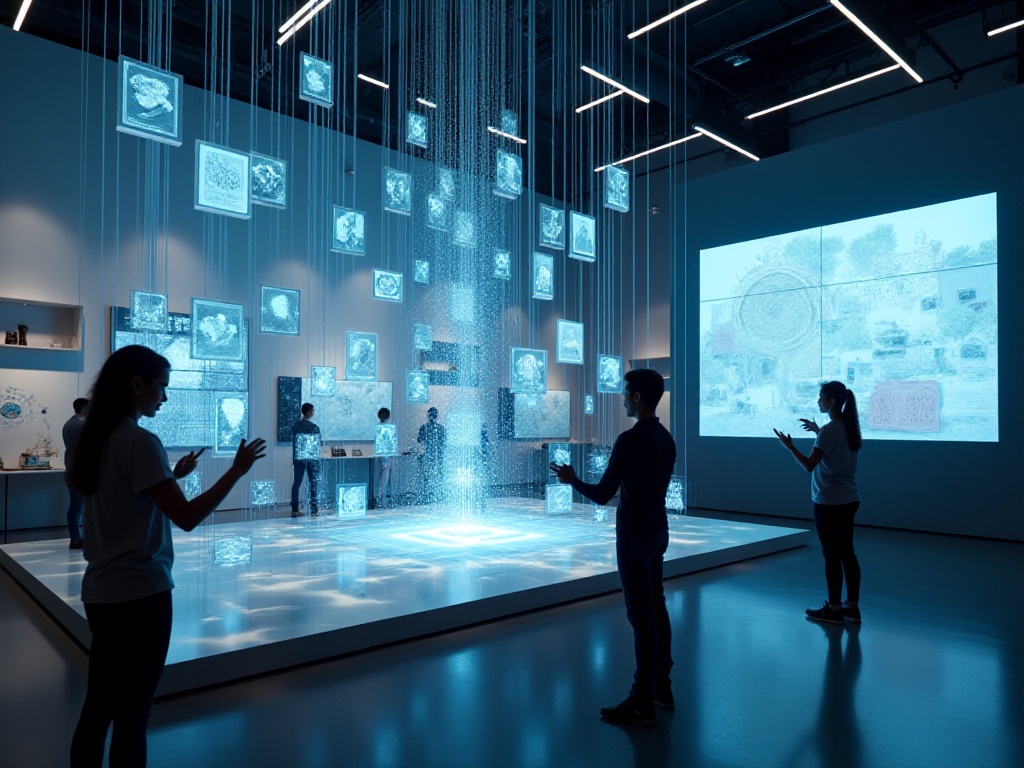
Personalized Treatment
Speaking of personalized treatment, I have to mention my grandmother's story. She has high blood pressure and had been taking medication, but the effects were never quite ideal. Later, when the hospital introduced an AI assistance system, they customized a medication plan for her by analyzing her genetic information and various examination data. Now her blood pressure is very well controlled, with fewer side effects.
This is the revolutionary change brought by AI. Instead of the previous "one-size-fits-all" treatment plans, we can now adjust based on each person's specific situation. The AI system can analyze multiple dimensions of patient data, including genetic composition, lifestyle habits, and medical history, to predict the effectiveness of different treatment plans and find the most suitable one.
Statistics show that AI-assisted personalized treatment plans have increased patient cure rates by an average of 30%, while adverse reaction rates have decreased by 45%. This means more patients can receive the most appropriate treatment without going through the pain of trial and error.
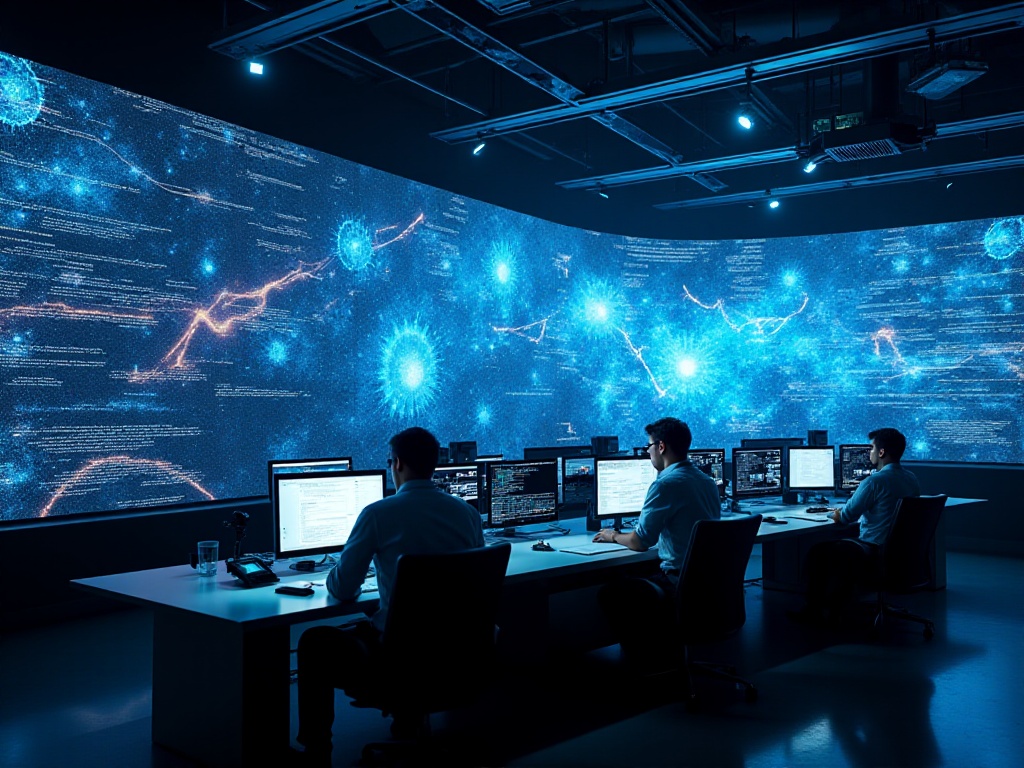
Surgical Robots
Speaking of surgical robots, I'm reminded of a documentary I watched recently. It showed how an AI-assisted surgical robot completed a complex heart surgery. The precision was absolutely amazing - the robot's "hands" were as steady as a sculpture, accurate to the submillimeter level.
Many major hospitals now use these intelligent surgical robots. They can not only perform routine surgeries but excel particularly in delicate minimally invasive procedures. For instance, in neurosurgery, robots can precisely locate surgical sites based on preoperative imaging data, avoiding important blood vessels and nerves.
Data shows that in certain types of surgeries, using AI-assisted surgical robots has reduced complication rates by 40% compared to traditional surgery. Additionally, patients recover faster due to minimal trauma. I've heard that medical students now have to learn to operate these surgical robots, which will likely become an essential skill for future surgeons.
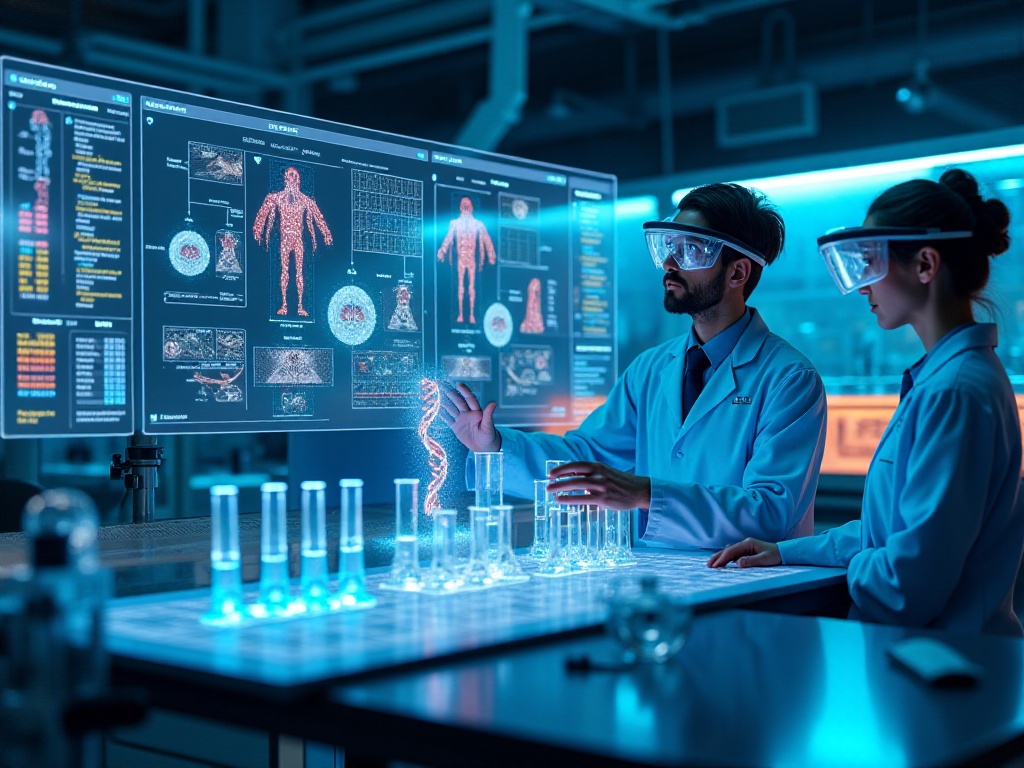
Future Outlook
As a young person who often stays up late, I'm particularly concerned about the development of medical technology. Although AI medicine still faces many challenges, such as data security and ethical issues, I believe these are all problems that must be faced and solved during development.
Importantly, AI is making quality medical resources more accessible. In small towns like my hometown, where people used to travel to provincial cities for serious illnesses, many diseases can now be accurately diagnosed and treated locally through AI-assisted diagnostic systems.
I believe that with the popularization of 5G technology and advancement of AI algorithms, telemedicine will become more widespread. In the future, we might be able to conduct most medical consultations and examinations at home, only needing to visit hospitals for surgery or special treatments.
Technical Outlook
As a young person interested in technology, I often track the latest developments in medical AI. Recently, multimodal AI systems, which can process multiple types of data simultaneously, have been particularly hot. For example, they can analyze your CT scans, blood test reports, and ECG together, combined with your medical history, to provide comprehensive diagnostic suggestions.
These multimodal AI systems are really impressive. Statistics show that hospitals using these systems have seen an average increase in clinical diagnostic accuracy of over 15%. I think it's like giving doctors a super assistant that can help them quickly process and integrate various information to make more accurate judgments.
Moreover, current AI systems can learn and evolve. For instance, they continuously summarize doctors' clinical experiences and learn from new medical research findings to become increasingly intelligent. I've heard that some hospitals' AI systems can now predict the development trends of certain diseases and provide early warnings.
Practical Cases
Last year, I participated in an interesting project developing an AI-assisted diagnostic system for a children's hospital. The project's initial purpose was simple: to address the shortage of pediatricians.
The most amazing aspect of our system was its ability to preliminarily determine whether a child has pneumonia by analyzing their cough sounds. Parents only need to record their child's cough using a phone, and the system can complete the analysis within seconds. During a six-month clinical trial, the system achieved an initial screening accuracy rate of 87%.
This achievement is particularly helpful for primary-level hospitals. Previously, pediatricians in county-level hospitals had varying levels of expertise, but with this system, even less experienced doctors can receive AI assistance to make more accurate diagnoses.
The system continues to evolve. Now it can identify not only pneumonia but also asthma, bronchitis, and other respiratory diseases. I remember one night when a parent rushed their child to the hospital, the system immediately detected possible asthma attack through sound analysis, allowing doctors to provide timely treatment and prevent the condition from worsening.
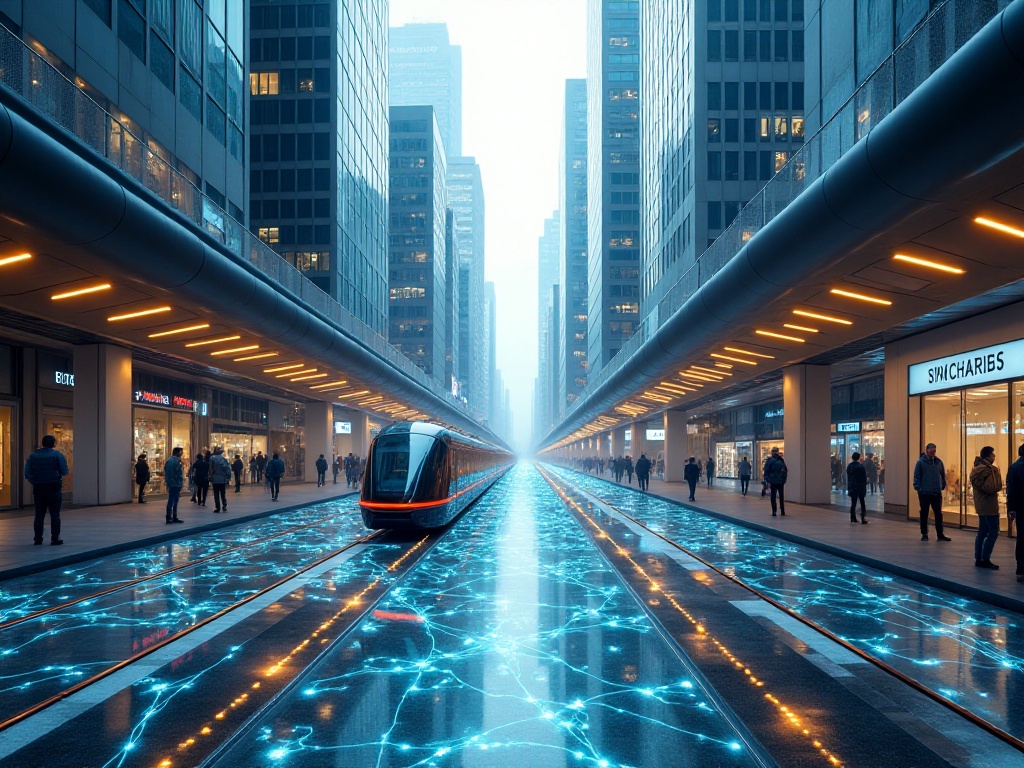
Conclusion
Writing this, I can't help but marvel at how fast technology is developing. I remember having to wait in long queues to see a doctor when I was young, but now we can get preliminary diagnoses just by taking out our phones. AI is quietly changing how we receive medical care, making medical services more convenient, precise, and accessible.
Although current AI medicine isn't perfect, I believe the future will be better. Perhaps in a few years, everyone will have an AI health assistant, monitoring their physical condition and providing timely health risk warnings. In this new era of AI + medicine, our lives are becoming better.
These changes aren't just technological progress, but innovations that benefit humanity. As young people of the new era, we are fortunate to witness and participate in this medical revolution - how exciting is that!

